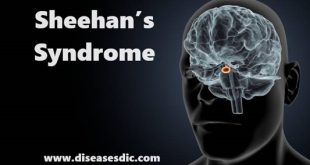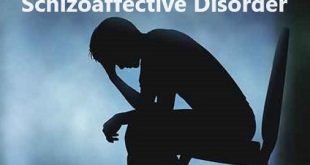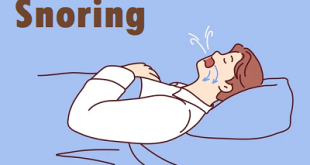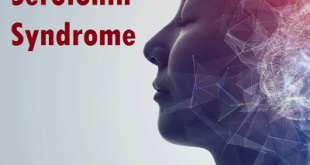Definition Stomach ulcer, which are also known as gastric ulcers, are painful sores in the stomach lining. Stomach ulcers are a type of peptic ulcer disease. Peptic ulcers are any ulcers that affect both the stomach and small intestines. Stomach ulcers occur when the thick layer of mucus that …
Read More »Sheehan’s Syndrome – Overview, Risk Factors and Treatment
Overview Sheehan’s Syndrome, also known as postpartum hypopituitarism or postpartum pituitary insufficiency, can occur in women experiencing severe uterine hemorrhage or exceptionally low blood pressure during childbirth. The significant blood loss and subsequent reduced oxygen flow to the pituitary gland, caused by the hemorrhage, result in tissue death within the …
Read More »Shwachman-Diamond Syndrome – Causes, and Treatment
Overview Shwachman-Diamond syndrome (SDS) is a rare genetic disorder that primarily affects the pancreas, bone marrow, and skeletal system. It is an autosomal recessive condition, meaning that individuals with SDS inherit a mutated gene from both parents. The syndrome is caused by mutations in the SBDS gene, which plays a …
Read More »Pruritus or Itchy Skin – Types, Complications and Treatment
Overview Pruritus, also known as itchy skin, is an unpleasant sensation that prompts the desire to scratch the affected area. It can occur in various parts of the body and may range from a mild annoyance to a severe, debilitating condition. Pruritus can be caused by numerous factors, including skin …
Read More »Schizoaffective Disorder – Types, Causes and Treatment
Definition Schizoaffective disorder is a complex mental health condition that combines features of both schizophrenia and mood disorders, such as depression or bipolar disorder. Individuals experience persistent psychotic symptoms, resembling those found in schizophrenia, such as hallucinations (perceptions without real external stimuli) and delusions (strongly held false beliefs not based …
Read More »Scrotal Masses – Causes, Complications and Treatment
Overview of Scrotal Masses Scrotal masses refer to abnormal growths or lumps that develop within the scrotum, the pouch of skin that contains the testicles. These masses can vary in size, texture, and location, and may be caused by a range of underlying conditions. Common causes of scrotal masses include …
Read More »Snoring – Complications, Risk Factors and Lifestyle Changes
Overview Snoring is a common sleep-related issue that occurs when the airflow through the nose and throat is obstructed during sleep. This obstruction causes the surrounding tissues to vibrate, producing a harsh and often loud sound. The most common cause is the relaxation of muscles in the throat, tongue, and …
Read More »Serotonin Syndrome – Risk Factors, Diagnosis and Treatment
Definition Serotonin syndrome is a potentially life-threatening, medication-induced condition that occurs in individuals who are receiving serotonergic agents. These medications cause increased serotonergic activity in the peripheral and central nervous systems, which results in high levels of serotonin accumulating in the body. Serotonin is a chemical needed for your nerve …
Read More » Diseases Treatments Dictionary This is complete solution to read all diseases treatments Which covers Prevention, Causes, Symptoms, Medical Terms, Drugs, Prescription, Natural Remedies with cures and Treatments. Most of the common diseases were listed in names, split with categories.
Diseases Treatments Dictionary This is complete solution to read all diseases treatments Which covers Prevention, Causes, Symptoms, Medical Terms, Drugs, Prescription, Natural Remedies with cures and Treatments. Most of the common diseases were listed in names, split with categories.








